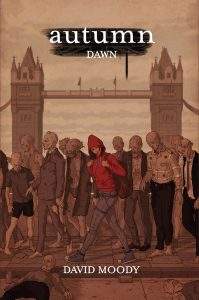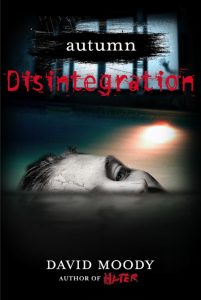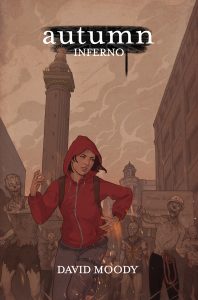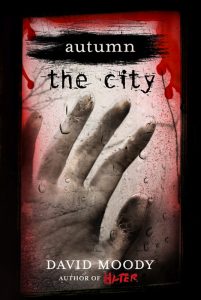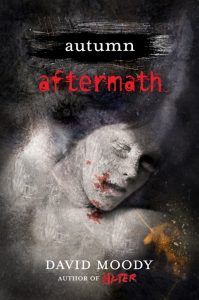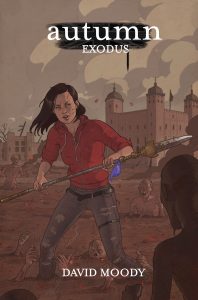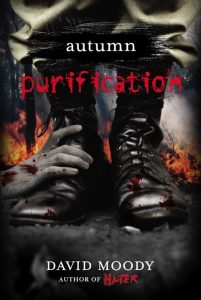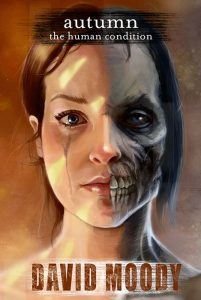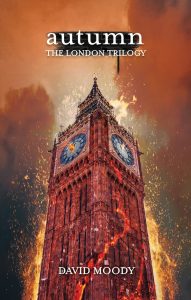Barely a Sound (part ii)
WINTER
Over three months had passed since the human race had come to an end. Had anyone been left in a position to observe, by now it would have become abundantly clear that despite their sudden and almost total disappearance, humans would continue to have a profound impact on the planet for decades to come. Already there had been marked atmospheric changes, accelerated by events. Across the globe, unchecked fires had burned, filling the skies with vast amounts of smoke. In many places, the temperature dropped markedly.
Those few poor souls left alive to try and eke out an existence were inevitably focused on their immediate situation and needs. They had neither the time nor the inclination to look towards the future. As bitter as the winter they were currently having to endure was, perhaps better days were ahead. The almost total cessation of human activity had resulted in the volume of pollutants being produced dropping to relatively microscopic levels. Across the entire United Kingdom, less than two hundred cars remained on the road. And that number would almost certainly reduce further, not least because the few people who’d so far survived lacked the necessary skills and expertise to keep vehicles well-kept and in good mechanical order. Changing oil and tyres (if the necessary supplies could even be located) would likely be the extent of any maintenance they attempted. Even if they were able to keep things moving, the survivors would continue to struggle. Petrol had already begun to degrade, losing its combustibility. Those people left alive were only just starting to appreciate the scale of the task ahead of them. The fact that fuel, like the food they were now forced to scavenge for, had a limited shelf-life was a further complication they’d yet to discover. Finding spare parts that hadn’t corroded, tyres that hadn’t rotted away… insurmountable challenges were already stacking up. There were electric vehicles, of course, but finding ways of recharging them was the issue. If the right person with the necessary knowledge and experience had been fortunate enough to survive, they might have been able to rig something up, but the chances of that happening were slim to none.
Right now, though, the people left behind had more pressing priorities: securing enough food, water, shelter, safety, warmth, medicines… Until their basic daily requirements had been satisfied, there was no point thinking about anything else. The size of their individual spheres of influence had been drastically reduced. Generally, people were now living their lives within areas no larger than a couple of square miles. Travelling any further out was difficult. Dangerous.
Even at this point, just a few months into this new era, it would have been fascinating to study the myriad changes that had occurred and plot and predict their implications. In reality, it just wasn’t important. What difference would it make to any of the people left alive? What good would any of this knowledge do? None of the survivors were thinking long-term. The future now is only tomorrow. If you last any longer than that, it’s a bonus.
The dead fared little better. There was a tendency amongst the people still alive to think that their world belonged to the dead now, but it didn’t, not really. Their mere existence was paradoxical in the extreme. They were driven to keep moving incessantly, and yet every shuffle, every twitch, every involuntary response, every individual movement they made served only to hasten their demise. Their remaining flesh was putty-like, their skin either like wet tissue paper or brittle as parchment. Minor incursions frequently resulted in catastrophic levels of physical damage being sustained. Their organs, muscles, nerves, sinews, blood vessels… other than bone, everything was reducing to the same thick, brown sludge. They became breeding grounds for insects and bacteria. No longer able to regulate their body temperature, the dead were completely at the mercy of the weather conditions. When the temperature was sub-zero, they froze.
In mid-February, Birmingham was hit by a heavy snowstorm. More than a foot and a half of the stuff fell, covering everything. Times past, it would have been an exceptional fall for this part of the world, but the old rules no longer applied. Every day was exceptional now.
In Needless Alley, the crowd of corpses that had built up around the garbage truck had increased to several hundred in number. In the bitter cold they had frozen together in a single solid mass, blanketed by snow. The direction of the wind and the long, thin shape of the passageway caused drifts to form several metres deep, completely obscuring the motionless figures. For a while the city was nothing but white, an illusion of purity. Virginal and unspoilt, the layer of ice hid almost every trace of the catastrophic devastation from view.
For all the changes wrought by the events of last September, some things remained. The weather in the United Kingdom continued to be wildly changeable, influenced by conditions in other parts of the world. It was a week after the snow fell when the temperature increased markedly. The snow disappeared with remarkable speed, leaving the centre of Birmingham flooded. Without people to maintain them, drains and gutters had become clogged. Leaves, human remains, vehicles, the displaced contents of flooded buildings… almost every overflow was blocked, and settled in the streets, unable to escape. When the water was at its highest, it flushed through Needless Alley with such incredible force that the garbage truck and the bony, flesh-stripped mass of corpses that had been blocking one end of the passageway were shunted clear.
Throughout the remaining days and weeks of winter, the weather conditions continued to wreak havoc. Though most days were above freezing, there were several vicious cold snaps when the temperature again plunged far below zero. Of the handful of survivors who’d chosen to try and see out the bitterest of seasons in the dead heart of the city, foolishly believing they’d find security and shelter in the shadows of its echoing, empty buildings, most were now dead.
The final few days of winter in Birmingham were monochrome and largely motionless. Other than occasional starving animals that cautiously sniffed around those foul-smelling streets that were accessible, and the birds that pecked and swooped from the brittle-branched trees, hardly anything remained.

